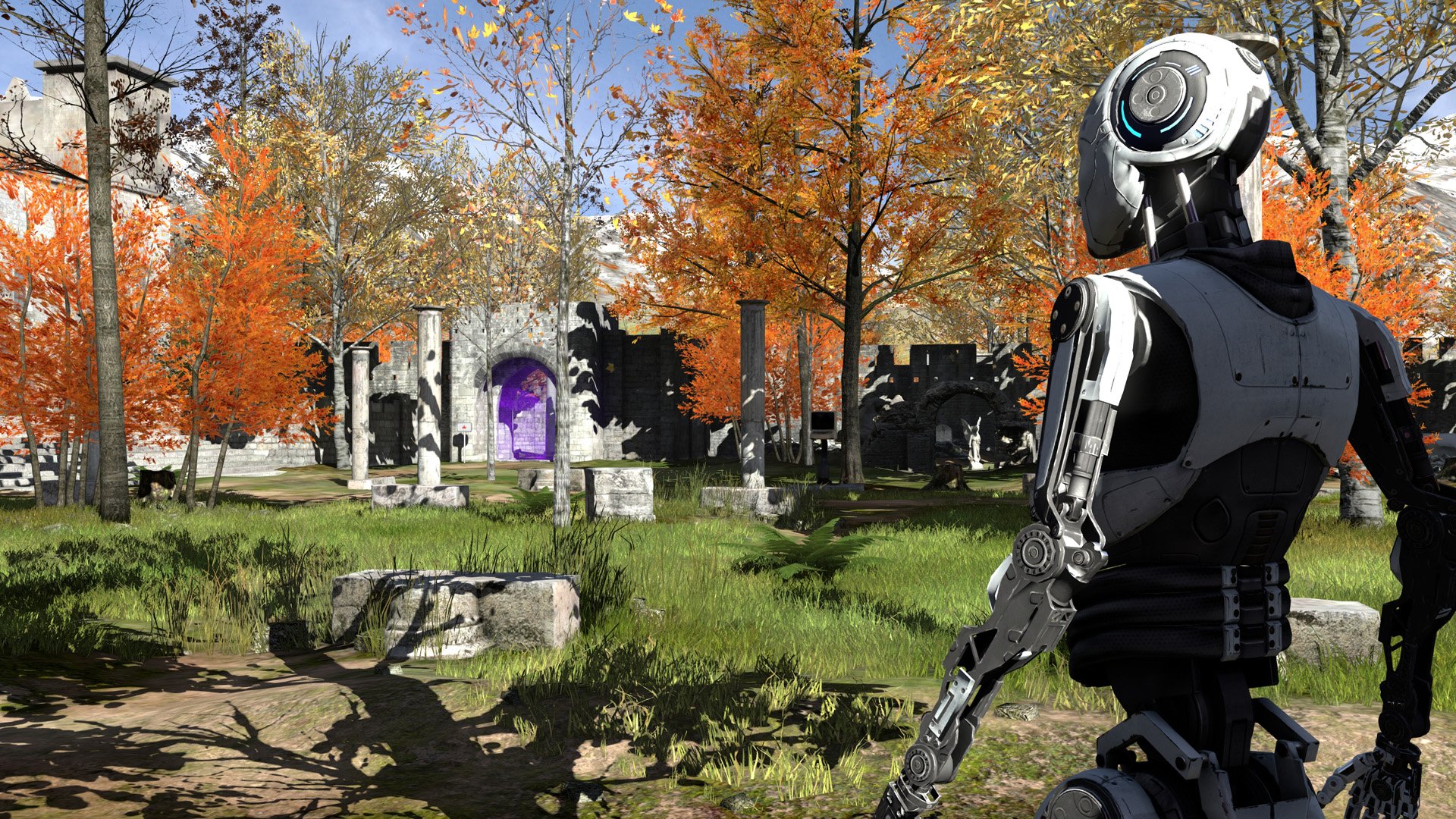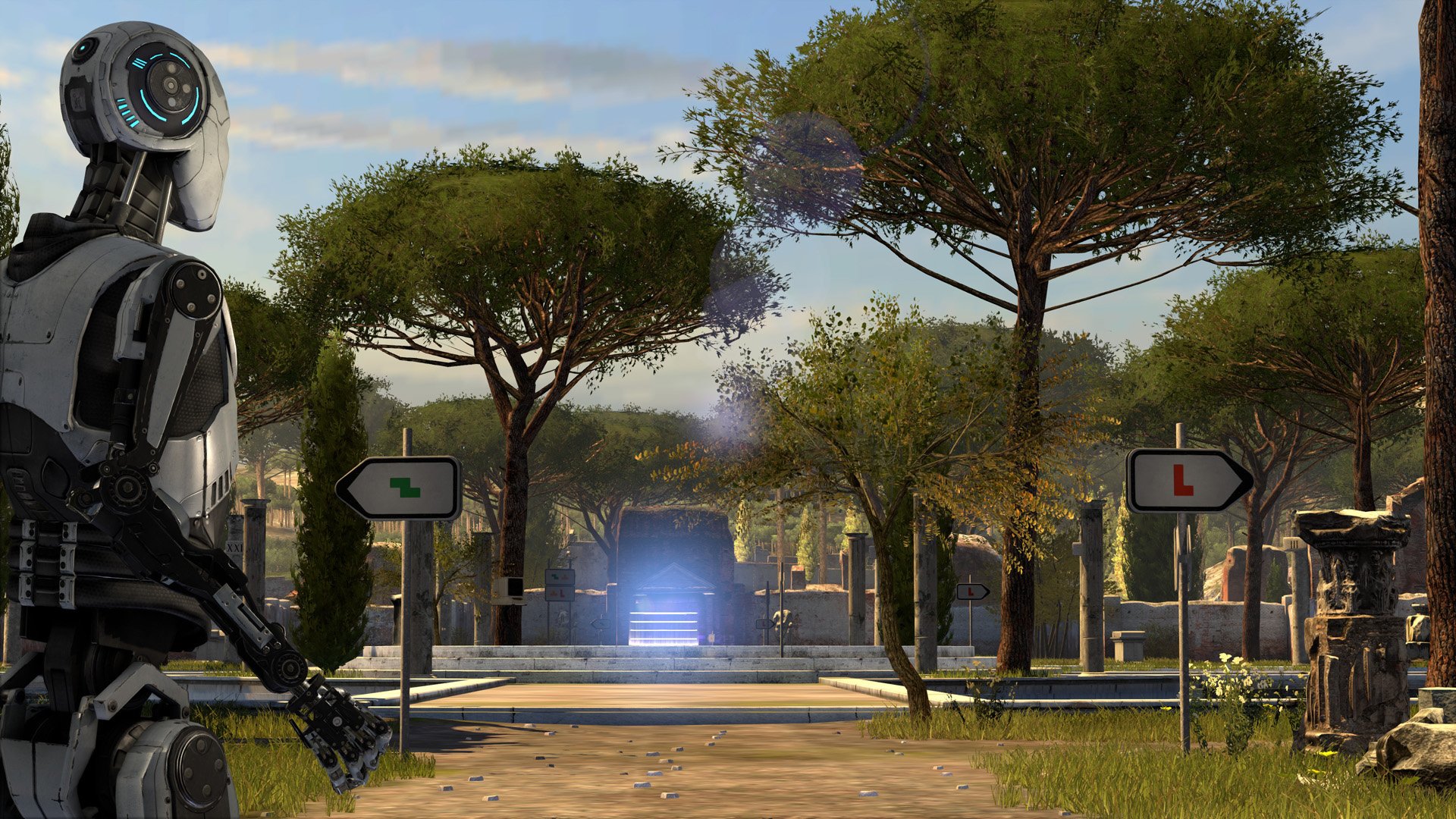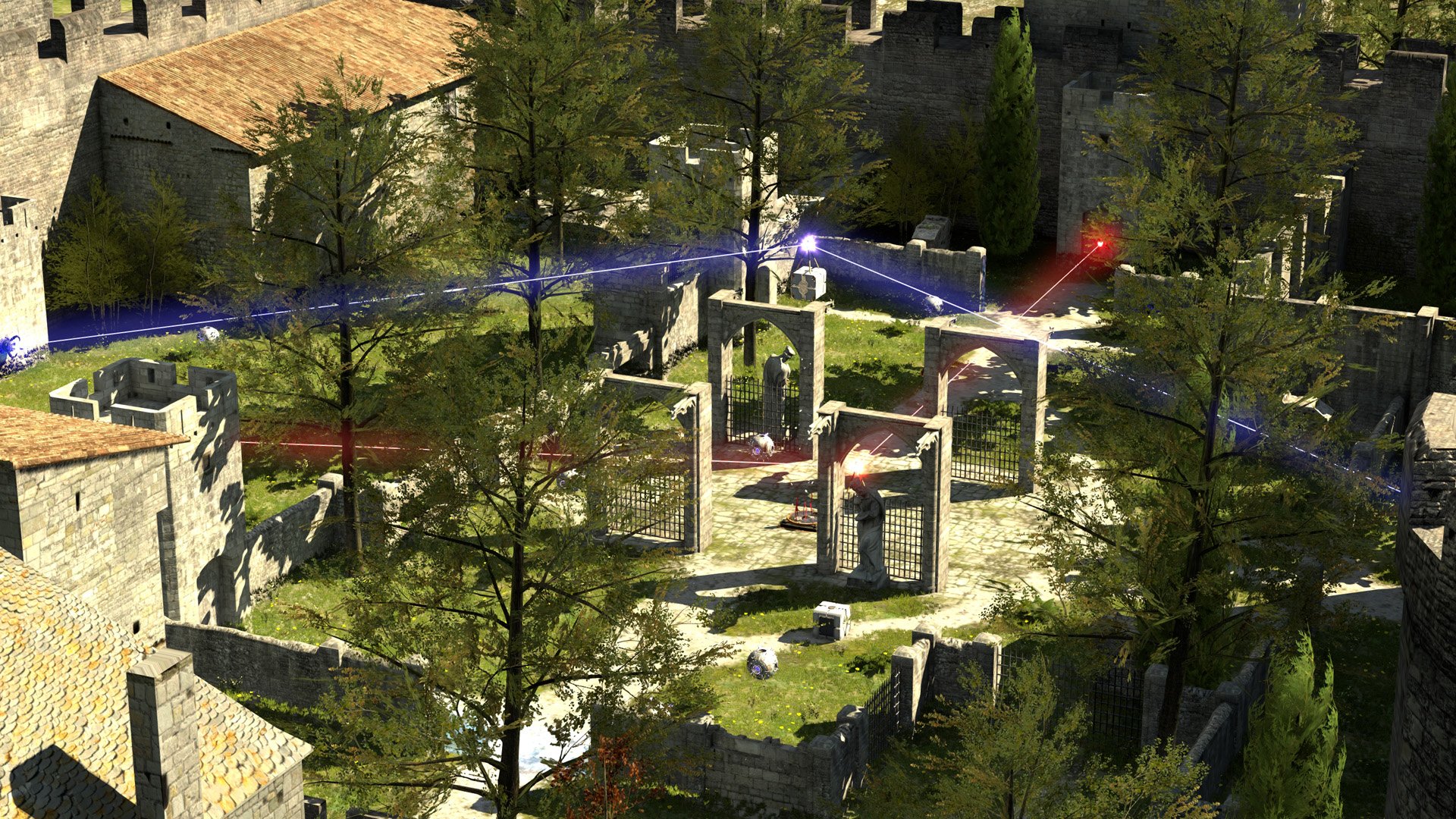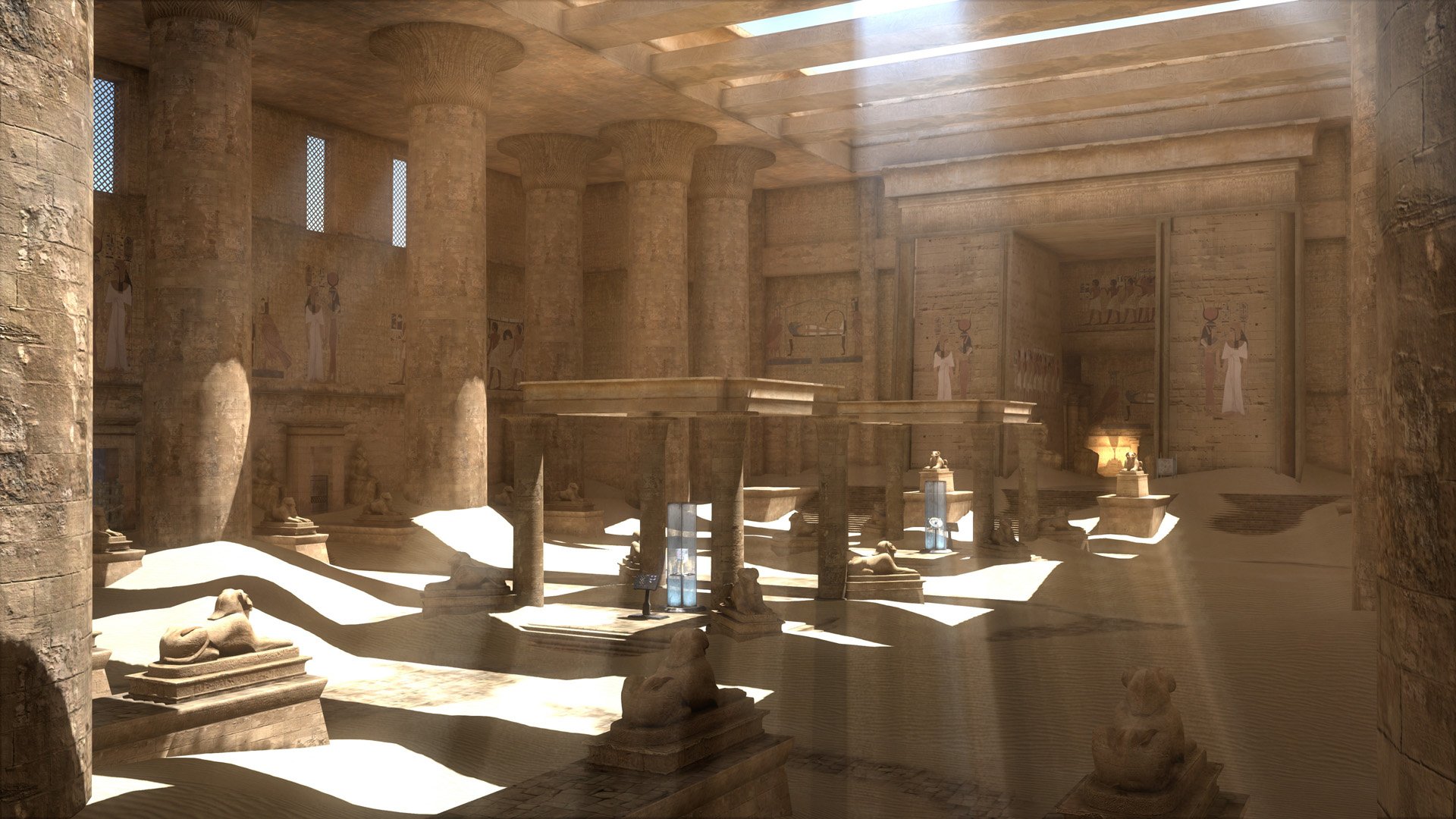The Talos Principle Xbox One review: Intriguing narrative with repetitive puzzles
The Talos Principle provides a thought-provoking, if confusing, narrative.

All the latest news, reviews, and guides for Windows and Xbox diehards.
You are now subscribed
Your newsletter sign-up was successful
You wouldn't expect the developer behind the Serious Sam series to pivot and create a first-person puzzle game, but that's just what Croteam did with The Talos Principle. It's always a risk going outside of your comfort zone and developing in a genre you're not as experienced with. When it works well, that risk pays off. And that's the case with The Talos Principle, which holds its own against other prominent puzzlers despite some drawbacks.
Philosophical leanings

Many puzzle games have one aspect in common: they all carry thought-provoking philosophical influences throughout, trying to engage players on a deeper level than most games. The Turing Test, Portal, The Witness, The Spectrum Retreat, Rime, and Pneuma: Breath of Life all ask profound questions, whether they be about life, loss, humanity, or even our health care system. The Talos Principle joins this group of games with the narrative it presents to the player.
The Talos Principle is heavily inspired by Greek mythology, though it includes references to other religions as well. The game practically hits you over the head with all of these references, from its visuals to its dialogue and even the notes you find in computers. For an aspect so important, you'd think its relation to your adventure would be at least a little apparent, but The Talos Principle ends up being confusing most of the time. All of the names you are thrown, like Elohim (God or Gods in Hebrew), have little meaning other than sounding sophisticated. And that's part of the problem. On the surface the game is shallow, but only when you unravel its layers do you discover its meaning. That could be taken as a complement to its depth, I just think The Talos Principle doesn't do a great job presenting it to players in a cohesive fashion.
What I do love is how The Talos Principle blends these mythological concepts together with elements straight out of science fiction. Specifically, artificial intelligence (AI). It's apparent from the beginning of the game that you're not playing as a human. You're playing as an android. Aside from this, it's quite easy to tell you're in a simulation of some sort from the get-go when the environment around you experiences odd glitches like the Matrix is falling apart. The juxtaposition of the old world versus the new is a nice touch.
Repetitive challenges

The Talos Principle has its own "gimmick" to it. Portal sees you utilizing two teleportation portals. The Spectrum Retreat focuses on color-based mechanics. The Witness has you solving maze-like puzzles on grids. And The Talos Principle throws players into crumbling ruins that they'll need to carefully navigate, avoiding lasers and detonating roaming drones among other threats while simultaneously unblocking barriers, in order to acquire Sigils, which are essentially Tetris blocks. In the more than 100 puzzles you can play through, the premise is the same, even if it gets more difficult the further you progress. There's variety in later levels, but the opening hours can get quite repetitive.
This is both a blessing and a curse in puzzle games. Keeping the core gameplay the same while adding new mechanics or elements to spice it up ensures that players are kept on their toes without feeling completely lost. You don't want to confuse them with seemingly unrelated puzzles that require opposite ways of thinking. However, it's all too easy for them to start feeling repetitive. The Talos Principle unfortunately falls into the repetitive category at times, though that's not to say it's ever boring.
All the latest news, reviews, and guides for Windows and Xbox diehards.
A dizzying world

The Talos Principle can make you genuinely dizzy while playing. I'm not sure if it's a motion blur issue or something else entirely, but its visuals did not sit right with me. I don't get motion sickness or headaches while playing games, even for hours on end, but The Talos Principle had me occasionally sitting back and blinking my eyes to get my bearings. This wasn't a major issue that stopped me from playing, but it was annoying.
Despite feeling repetitive, The Talos Principle excels at providing thoughtful challenges for players to overcome. Its narrative can get needlessly confusing, but it's well worth it to dig deeper and learn about the mysteries surrounding your adventure.
Pros:
- Juxtaposition of mythology and science fiction.
- Thought-provoking narrative.
- Intuitive environment to explore.
- Challenging puzzles.
Cons:
- Confusing.
- Repetitive puzzles in the beginning.
- Can cause motion sickness.

Jennifer Locke is a Former Contributor for Windows Central, having played video games nearly her entire life, and is very happy Xbox is growing a stronger first-party portfolio. You can find her obsessing over Star Wars and other geeky things on Twitter @JenLocke95.
